Fresh off my experiences with the energetic, vibrant, and confident T51i, I had little rest before the T70 arrived on my doorstep. Upon first glance, the T70 immediately brought back fond memories of Beyerdynamic’s 2005 premium line: the 770, 880, and 990 (the latter two which are still widely available). I’m no stranger to Beyerdynamic’s full sized offerings, having owned multiple versions of some headphones. And the T70 looked very much like the DT770, in which it presumably replaced in Beyerdynamic’s line. Yet the similarities end there, as the T70 sounds like an entirely different animal.
The T70 is among the growing number of Beyerdynamic headphones equipped with the impressively efficient Tesla drivers. In their Tesla line, you’ll find everything from the portable DT1350 and T51, to the private home/office worthy T70 and T90, and their cream-of-the-crop T5p and T1. Beyerdynamic seems to have gone all in with their Tesla technology.
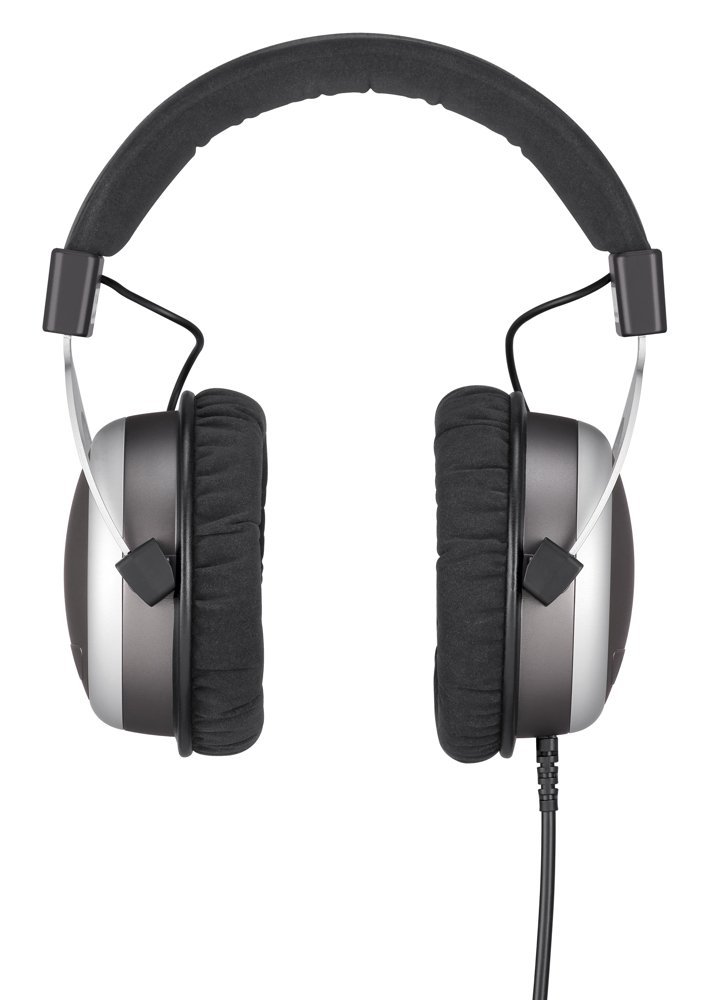
Build Quality…
If anything can be said of Beyerdynamic, it’s that they know how to make durable, elegantly attractive, lightweight headphones, with excellent comfort. Starting from the top, the headband has been changed from the Premium models use of synthetic leather, now replaced with micro velour that rests quite comfortably. Easily my favorite headband out of all the Beyerdynamic headphones I have used.
The grey, metallic extension arms have not changed from the 2005 models. They are identical to those used in the older DT770s, 880s, and 990s. The inner-side of the arm has nine circular notches that serve as size indicators (the more circles shown, the bigger the size). As amazing as Beyerdynamic is in engineering their headphones, they refuse to improve their size adjustment mechanism. Adjusting the height of the extension on both cups equally can be a bit troublesome, without removing the headphone from your head, or being in front of a mirror. There is an initial learning curve in using Beyerdynamic headphones with this type of adjustment design, which at times, will seemingly fight to remain right where it’s at, or completely slip to it’s shortest height. I’ve had years of experience with these types of headphones, yet my annoyance with this hasn’t waned in the least.
At the end of each arm is the highly durable, plastic cups, which seem to be unchanged from the DT770’s cups other than the T70 branding near the bottom of the exterior accent’s surface. Each cup houses a small entry for the freely hanging cables for the left/right channels, similar to the older Premium line. Be careful not to snag anything on those cables. On the inside of each cup are the black, micro velour ear pads, marking the T70’s biggest visual difference from the DT770’s silver colored velour pads. The T70’s pads are a bit thinner and lower profile compared to the DT770’s pads.
The inner driver cover has also changed, which isn’t as thick and dense as the older Premium line’s driver covers. I feel my ears aren’t as firmly pressed against the driver cover as they were in the older headphones, improving the long-term comfort. At the bottom of the left cup is the audio cable, which is still as thick and durable as the older, premium line. It is quite lengthy, and terminates in a 3.5mm plug, with a screw on 6.3mm adapter. Both ends of the cable contain very good strain reliefs, and I doubt most accidental tugs would cause any internal damage.
Accessories included with the headphones are a 1/4″ (6.3mm) screw on, gold-plated adapter and a carrying case.
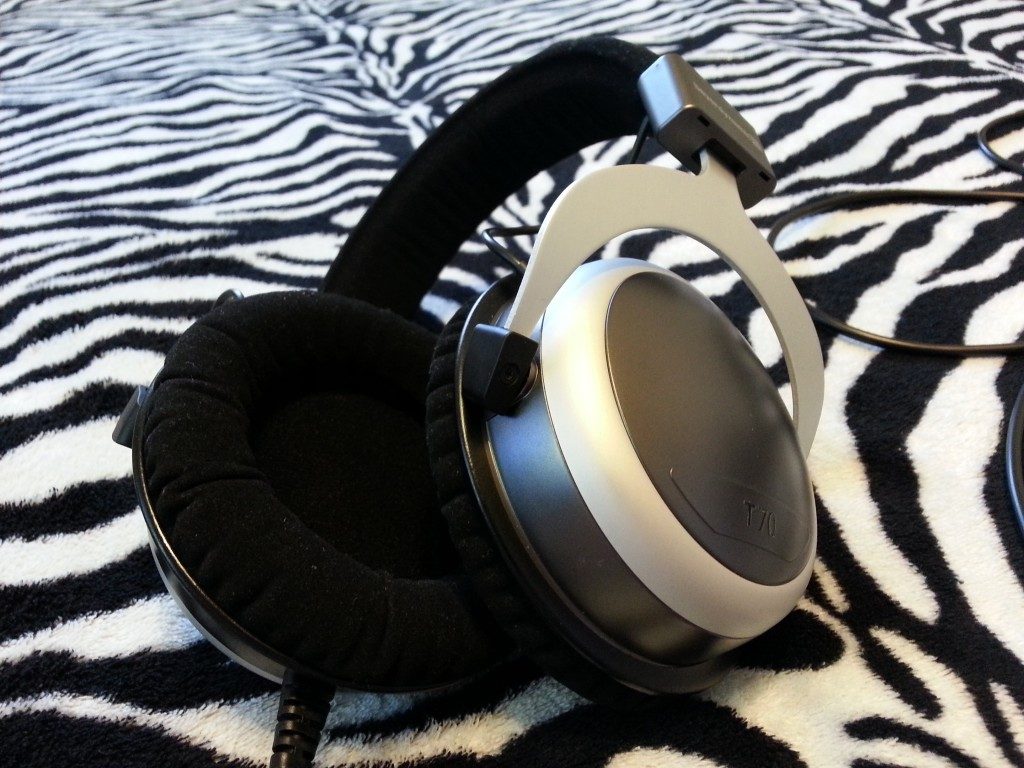
Comfort…
The T70 and comfort go hand in hand.
The headband has changed and improved over the older premium line. The older, non-Manufaktur models used a synthetic leather underbelly on the headband, which I found to be one of the detriments to the otherwise incredibly comfortable Beyerdynamic premium line. The T70 instead, uses a new cloth material dense and airy enough to sit on my head comfortably without uneven hotspots. Not my favorite headband, but definitely on the right side of comfort.
Clamping force can make or break a headphone, which hasn’t been an issue with Beyerdynamic, which has been quite consistent with their consumer products in that regard: It is their Pro line that sacrifices a bit in comfort for a very tight, strong, secure fit. Thankfully, The T70’s clamping force is on the lower side of moderate, yet still quite secure.
Moving on to the pads, I’m on the fence with Beyerdynamic’s decision to stray away from their immensely popular velour pads which audiophiles have used with many other headphones of varying makes and models. The older velour pads were considered to be among the best in comfort and isolation (for velour). The T70’s micro velour is quite dense, and considerably shorter than the older velour, placing your ears a bit closer to the drivers. The pads are quite comfortable, and remain cool for a longer period of time compared to the sweat inducing leathers of most closed headphones. The one downside to the new pads is that it may be harder to get a good seal for some. I just lauded the T70’s clamping force for being just good enough for comfort, but unfortunately, I feel that more clamping force would’ve been preferable for yielding a better seal, at least with these pads. I’m curious to know what the T70 sounds like if it were equipped with DT770 pads instead.
The T70’s has just enough weight to feel luxurious, but is distributed quite well throughout. Overall, the T70 stands out as one of the more impressive closed headphones I have used in terms of comfort.
In terms of isolation, once a proper seal is achieved, the T70 keeps noise leakage to a bare minimum. Even with moderately high volume levels, the T70 will keep most of it’s sound inside the cups. The passive noise isolation is good, though not on the level of the other headphones, particularly ones that use leather pads.
Design Issues…
- Wonky size adjustment mechanism
- Pads a bit shallow, so those with sensitive ears that don’t like them touching the driver padding may want to take note
- Pads may not seal properly for some
- There is very little to complain about here. The T70 is of a tried and tested design, with very few detriments to an otherwise masterful design
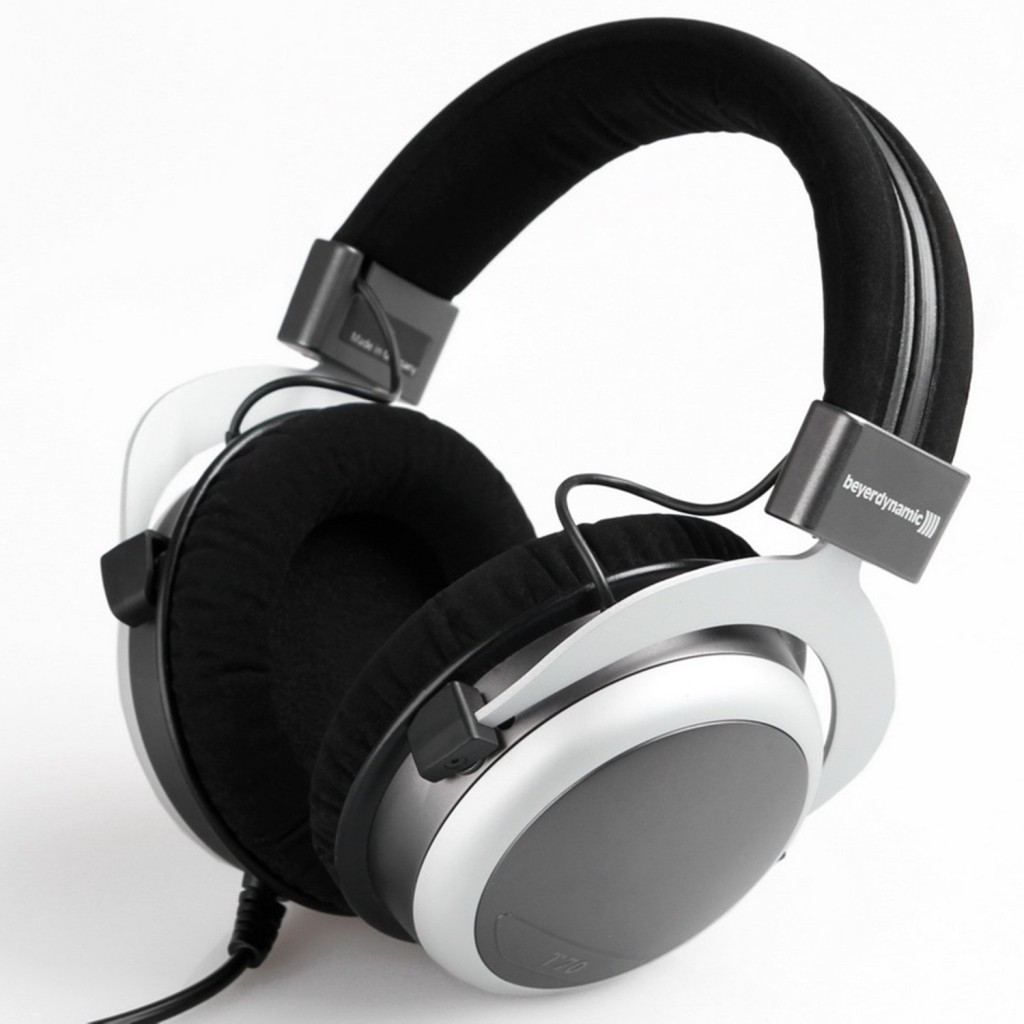
Sound…
Before getting into the specifics of the T70, I’d like to bring up a few things to help explain my process. I feel that most headphones fit 4 types:
TYPE 1: A headphone that I immediately fall in love with, with an agreeable tonality that suits my tastes.
TYPE 2: A headphone that may not be suited perfectly to my specific tastes, but I can truly enjoy for other reasons and find good in what it does. For example, headphones that are targeted for sheer neutrality. I personally prefer a fuller bass response and some warmth, but have enjoyed more neutral oriented headphones from time to time.
TYPE 3: A headphone that I may not initially like but grows on me, for any variety of reasons.
TYPE 4: A headphone that I find offensive, bad, terrible, et cetera. A headphone that brings absolutely nothing of value to the table. A headphone that no matter the length of use would I ever consider good by any stretch of the word.
The T70 definitely falls under the 3rd type.
I have never been a believer of burn-in. I have always attributed the change in a headphone’s sound as a person’s ears/brain adjusting to the sound. Whether you agree or disagree with me isn’t what’s important. The T70 is a headphone that has changed my outlook on the initial headphone listening period. I advise anyone interested in the T70 to give it some time, whether by physical burn in, brain burn in, or whatever other rituals you may believe/practice. Regardless, you simply cannot give the T70 a short demo and write it off immediately. It is a headphone that requires some time to bloom.
The first day that I used the T70, it came off as dry, clinical, sterile, bass anemic, with an egregious upper range. In short, I was a bit appalled by the T70 and couldn’t believe this was the sound Beyerdynamic was leaning towards. I was close to dismissing it entirely. I’m of the type that would rather not review a headphone if I felt it wasn’t worth discussing, for whatever reason. Better to say something nice, or say nothing at all.
I gave the T70 a chance. Through constant use, and an adjustment period, I can safely say that I feel the T70 is more often than not, a very good headphone. While it has a few shortcomings that detract from intended prestige, the T70 hits some truly solid notes in certain aspects.
Let’s get into the specifics…
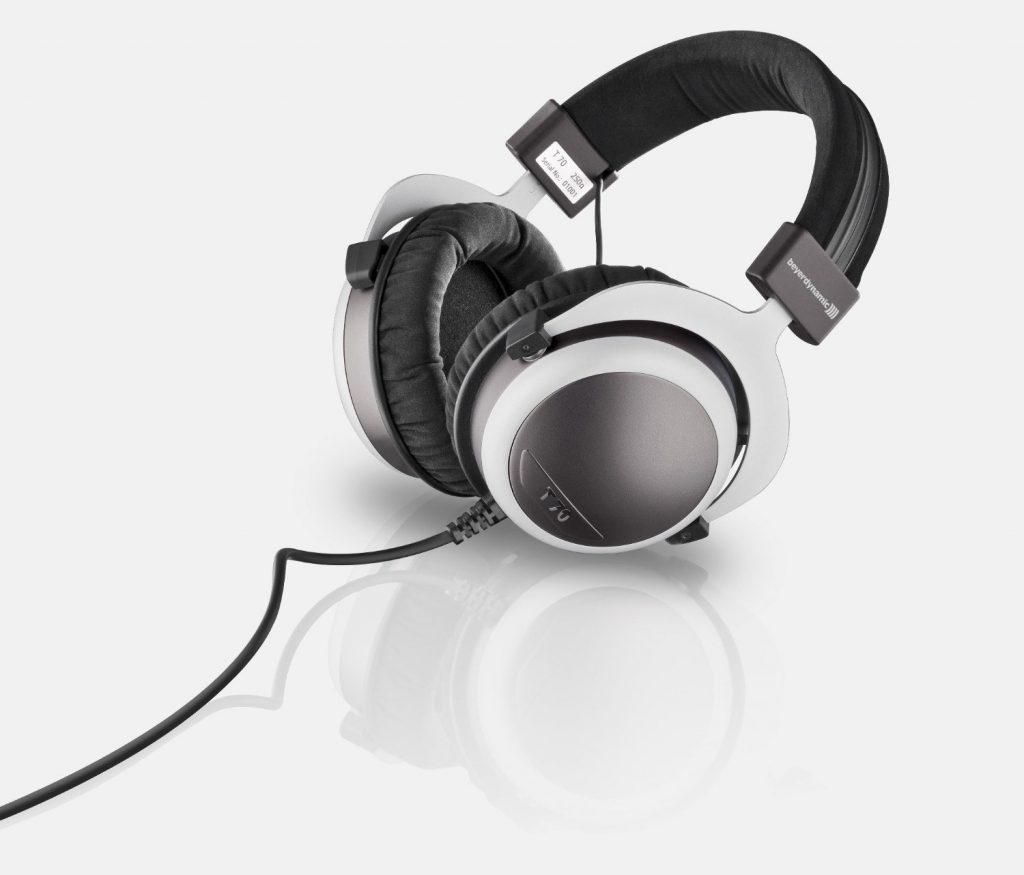
Bass…
This is the most surprising aspect of the T70’s sound. Overall, the T70’s bass section is on the light side of neutral, lacking potency, and impact. To be quite honest, I was disappointed with the T70’s bass, as it just didn’t fill out the T70’s sound to a state of cohesion with the midrange and treble. It doesn’t mean that the T70 is devoid of any warmth and presence in bass. In fact, I’m actually rather impressed by it’s sub bass extension. There is a tasteful amount of ambience, and atmospheric rumble from the sub bass, centered on 40hz, which lends itself well to my favorite genre, chillstep. It impresses me, actually, and when music focuses in this area of bass, the T70 can sound warm, and pleasing.
Above the resonance point at 40hz-50hz, however, the bass starts to become nondescript and merely becomes audible, with no real sense of impact and energy. This cuts out bass bleed into the mids entirely, which is beneficial, though ultimately, too light for my personal taste.
In short, the T70’s bass is tight, well defined, and quite controlled, but a bit on the light side. While it may be possibly due to it’s lack of quantifiable impact, it doesn’t stop the T70 from sounding mature, precise, and a picture of self-restraint. Bassheads need not apply. Unlike what I’m typically used to from Beyerdynamic, the T70’s demands the least amount of attention from the bass.
Midrange…
The main section of mids, where most vocals and instruments rest, is quite fantastic. There is a bell like clarity to the mids, sounding neither too warm, nor too cold. It is presented upfront and center, remaining utterly focused. I haven’t heard a headphone this crisp and clear in the mids in quite sometime. While the majority of the mids is presented very, very well, there is a lack of consistency in the upper mids, (the harmonic ranges), where the T70 exhibits some deep notches as well as spikes that can become a bit glaring and harsh on the ears if you’re particularly sensitive in these areas.
There is some notable sibilance, as well as some upper mid fatigue that stems from the sharp 5khz range to about 6.9khz. These generally prominent, upper mid range aids the T70 in it’s ultra detail and clarity, though it comes with added ear fatigue and an artificial, metallic tone to s/t/z notes. The upper mids will undoubtedly be the main area of criticism, as it leans too heavily towards prominence, causing certain ranges to sound a bit artificial and problematic.
Treble…
The treble range remains true with what I expect from a Beyerdynamic headphone: It is prominent, extended, sparkly and with plenty of air. After the sharp upper mid range to lower treble transition, there is a pretty large dip at 7khz, which then again rises back up at 8khz, remaining quite sharp up to around 11khz where it more or less settles.
From my experiences with Beyerdynamic headphones, the treble section of the headphones are mostly a “love it” or “hate it” by design. The T70 does not stray far from that firmly rooted path. If you want a smooth, inoffensive treble range, the T70 is not for you. If you want to take a gamble with a clarity boosting treble section, the T70 may suit your needs. Just be wary of potential ear fatigue.
Soundstage & Clarity…
Despite being a closed back design, the T70 exhibits a very nice sense of space and size in terms of soundstage. Stereo and instrument separation is excellent, with audio cues remaining distinct and highly defined. The T70’s soundstage comes across as being more oval shaped rather than circular, favoring width over depth.
The T70’s tonality clearly favors the midrange and treble, which benefits clarity in nearly every regard. Subtle details and nuances will be easily retrieved by the T70. This is a double edge sword, as it will also pick up glaring flaws in recordings. The T70 is one of the least forgiving headphones I’ve heard, and demands high quality audio at all times. If you use media of questionable quality, the T70 will do you no favors.
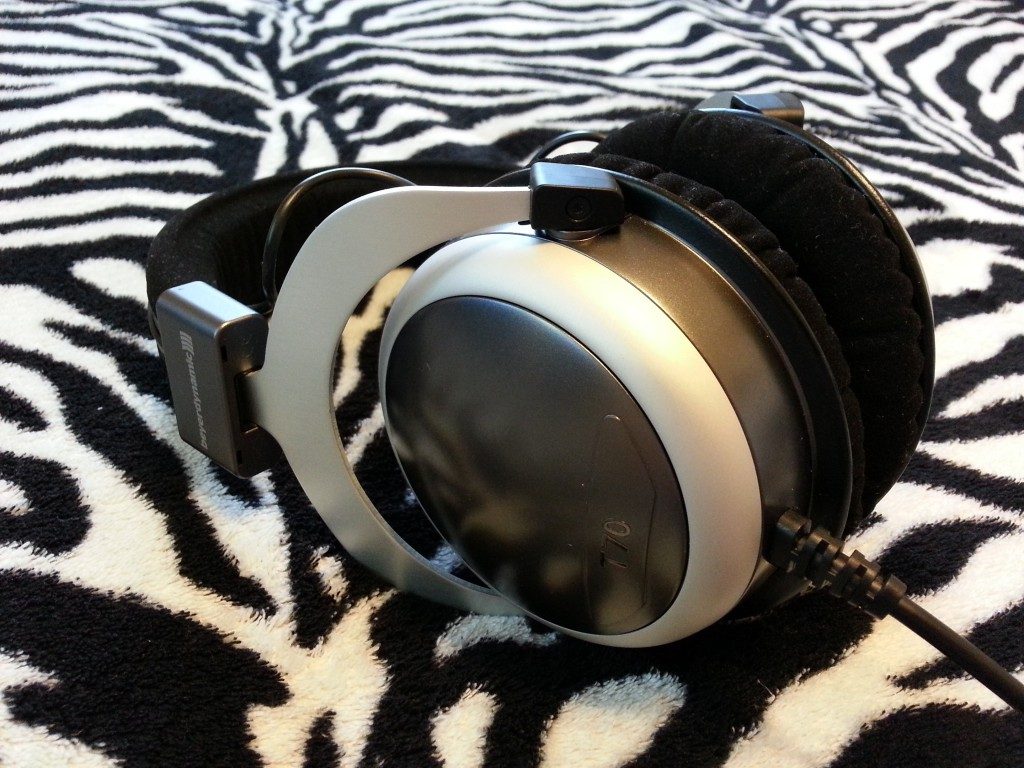
While the T70 is very, very efficient for a 250ohm headphone, I recommend a warm, full-bodied amplifier to offset the deficiencies in the T70’s signature. A warm, smooth amplifier should be the best match for the dry, somewhat clinical T70.
My personal recommendations for media use with the T70’s are as follows:
- Movies? No
- Music? Classical, Jazz, other detail-centric genres
- Gaming? Competitive
Lacking a bit in euphony and musicality, it’s tight, articulate, and slightly clinical sound will be better suited for critical listening and detail extraction. It is less than ideal for immersive content like action movies and video games that rely more on impact and body in the lower regions of sound. It will perform admirably for competitive gaming, where picking out subtle details bear significant importance.
Comparisons…
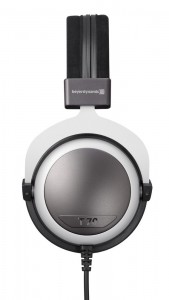
I’ll be comparing the T70 to the only closed headphone I have on hand, the Monster DNA Pro. Yes, it’s a Monster product, though unlike most of their previous products, is a good headphone even by audiophile standards. The Monster DNA Pro is a well controlled and behaved headphone with a great sound signature for most applications, with well defined, controlled bass, detailed, slightly recessed mids, and sparkly, energetic treble. The T70 is an articulate, crisp, detailed headphone that favors clarity in the mids and treble ranges, with a taut, tight, polite bass response.
Starting with the bass, the T70’s bass is tight, polite, and ‘all right’. It extends quite low, though with not much impact and energy. The Monster DNA Pro has more body and fullness to the bass in comparison, without ever being overbearing or overemphasized. The DNA Pro was criticized online for being a bit light on bass (which if you were to compare to the DNA On Ear and the older Monster headphones, is certainly true), though I never found it to be so, and attributed the complaints with a lack of seal. If people find the DNA Pro bass light, then the T70 will sound positively bass deficient in comparison.
The mids are a high point in the T70’s sound, being quite present, very detailed, and sharp. It lacks a bit in warmth, but makes it up with clarity. The DNA Pro’s mids are also detailed and sharp, though slightly subdued and spaced further back. The T70’s mids are considerably clearer, and on another level over the DNA Pro’s mids. The treble ranges are energetic on both, though airier, breathier, and more spacious sounding on the T70 by a considerable margin.
As far as soundstage goes, I have always found the DNA Pro to be pretty spacious for a closed headphone with very good stereo separation. That being said, the T70 outshines the DNA Pro in this aspect. Whether it’s due to the leaner, less bass driven tonality, the T70 exhibits wonderful airiness in the soundstage and amazingly defined stereo placement. The DNA Pro isn’t congested sounding by any means, yet that’s how it comes across when compared directly to the T70.
When it comes to comfort, there is absolutely zero comparison: The DNA Pro falls apart in this regard when placed against the T70. The DNA Pro clamps strongly, doesn’t allow the ears to breathe, and uses a proprietary air cushion ear pad design that just does not hold up against the T70’s breathable pads, nearly perfect clamping force, and long-term comfort.
Overall, the T70 has a situational sound signature that clearly outshines the DNA Pro in clarity, detail, speed, articulation, and instrument separation. Really, there is no contest in those regards. That being said, the DNA Pro has a more energetic sound with a fuller bass response and vibrant energy that I feel lends itself more to a broader spectrum of content. There’s no mistake, the T70 is clearly more refined over the DNA Pro. Subjectively speaking however, I prefer the DNA Pro for my tastes in music and general media due to a more versatile sound signature.
Final Impressions…
At first, I wasn’t pleased with the T70. In fact, out of all Beyerdynamic headphones I’ve owned/tested, the T70 was my least favorite. It wasn’t until a few days later where my ears adjusted to their signature, and I came to like them for what they do. I personally would never use them for anything other than competitive gaming, to pick up all the subtle details, but I can see why others looking for high quality, detail retrieval would gravitate towards this sound.
It certainly sounds classy, just not my sort of class. We all have our tastes. The T70 just didn’t happen to be mine, though again, I can certainly appreciate all the things it does right. For those looking into this kind of sound, the T70 makes a pretty big case for itself. Just be warned that it may be a headphone that doesn’t resonate with those who like some added warmth in their sound.
The T70 is a headphone aimed for the critical listener who favors extracting the most detail out of their sound, and less for those who don’t mind sacrificing a bit of clarity and detail for a more forgiving, euphonic sound signature. It is a distinctly professional sounding headphone: All business and class.
Do yourselves a favor a give the T70 some time. Short demos absolutely will not do with this headphone.
Pros:
- Crisp, crystal clear sound
- Oozes detail
- Instrument Separation
- Comfortable
- Build Quality
- Very efficient for 250ohm (amping still recommended)
Cons:
- Slight lack of euphony
- A bit tilted towards brightness
- Bass is slightly lean relative to the mid and treble range
- Clinical, sterile at times
- Size adjustment mechanism
- Initial adjustment period


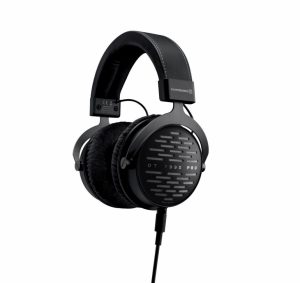
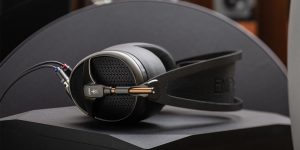
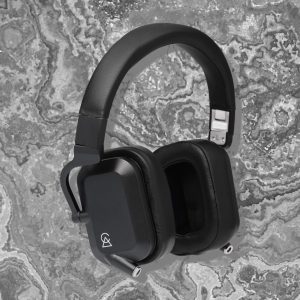
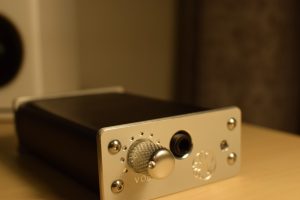
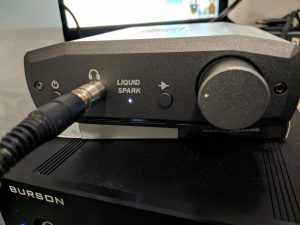
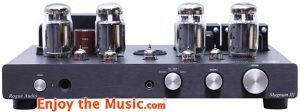

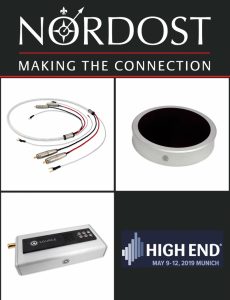





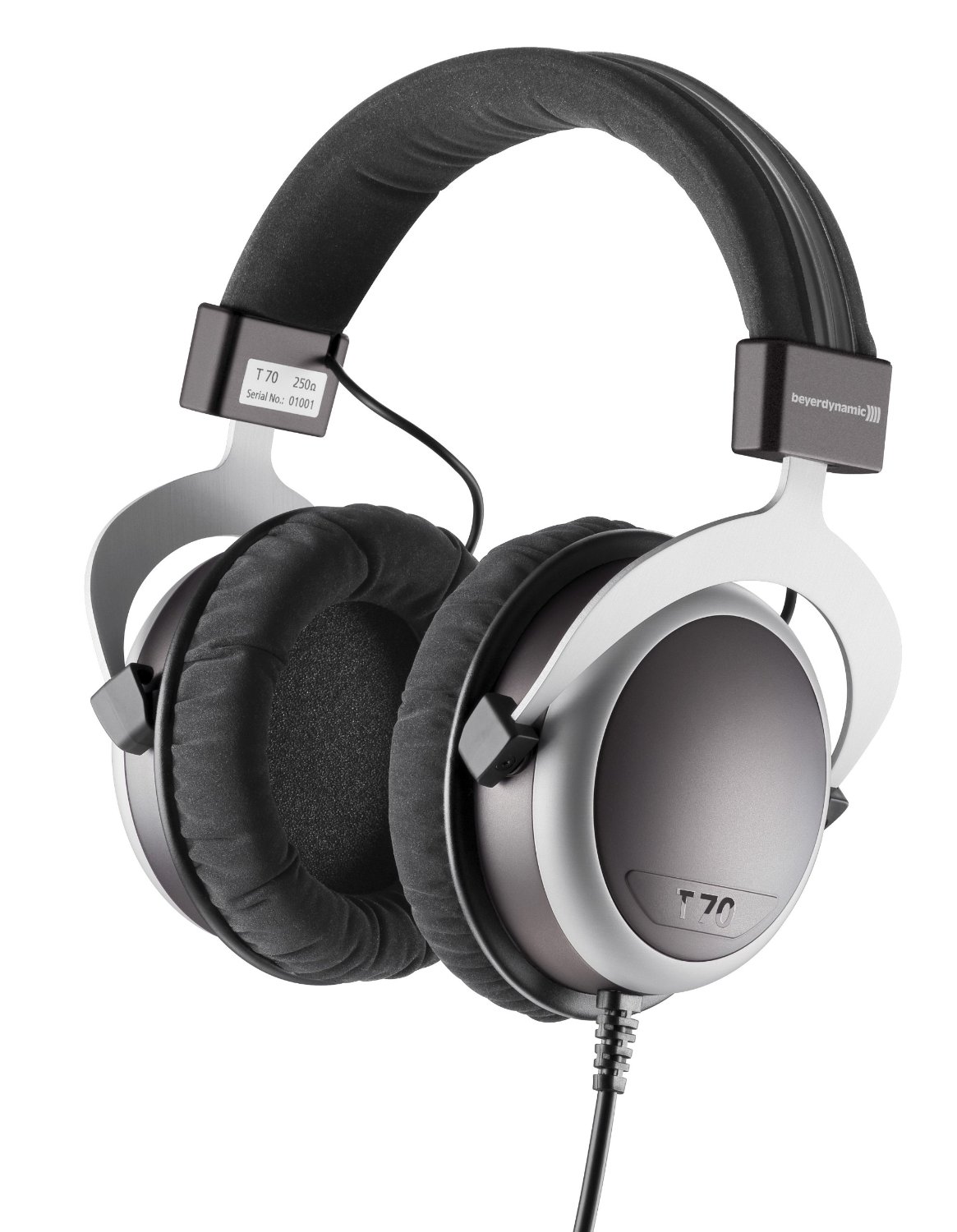
Reply
Reply
Want to join discussion?
Feel free to contribute!